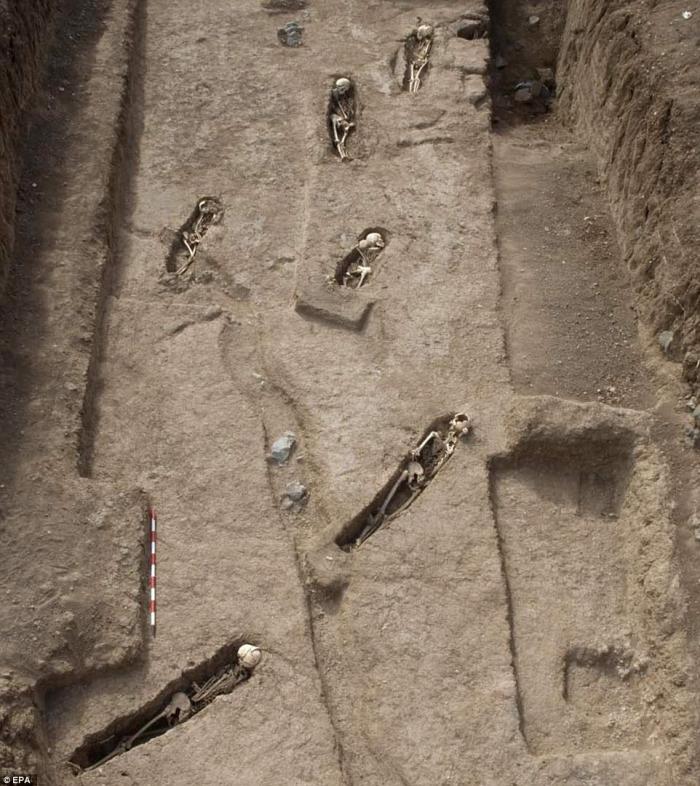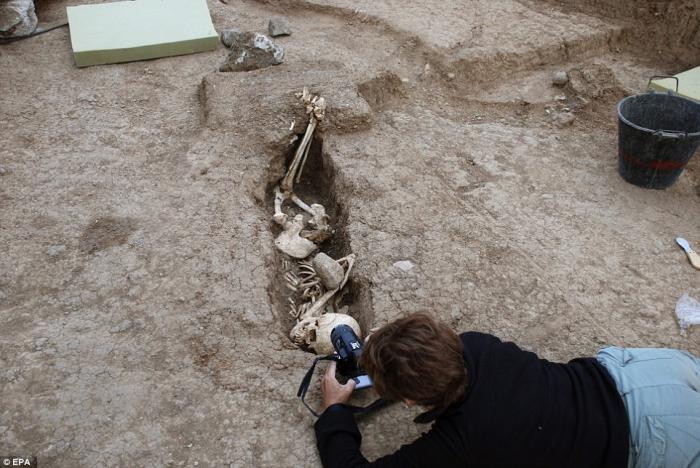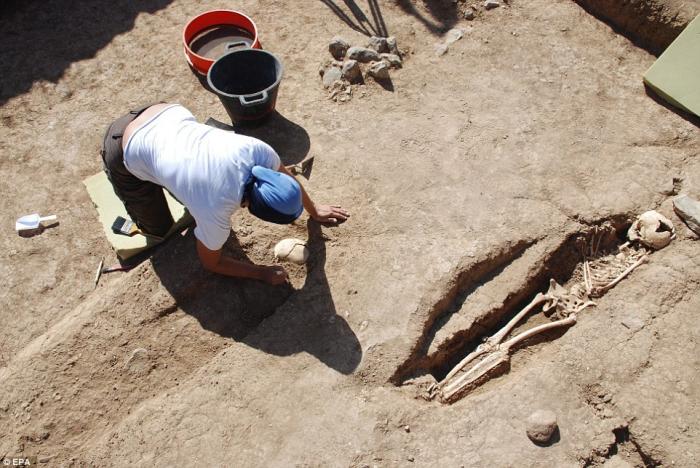We ask you, urgently: don't scroll past this
Dear readers, Catholic Online was de-platformed by Shopify for our pro-life beliefs. They shut down our Catholic Online, Catholic Online School, Prayer Candles, and Catholic Online Learning Resources essential faith tools serving over 1.4 million students and millions of families worldwide. Our founders, now in their 70's, just gave their entire life savings to protect this mission. But fewer than 2% of readers donate. If everyone gave just $5, the cost of a coffee, we could rebuild stronger and keep Catholic education free for all. Stand with us in faith. Thank you.Help Now >
Have the graves of the first African slaves been found?
FREE Catholic Classes
Archaeologists have identified the origins of some of the first slaves brought to the Americas. Researchers used DNA to confirm their findings.

An image from 1865 shows Africans being taken into slavery. One victim is being put to death arbitrarily, or for some unknown offense.
Highlights
Catholic Online (https://www.catholic.org)
1/18/2017 (8 years ago)
Published in Africa
Keywords: Canary Islands, African, slaves, graves, DNA
LOS ANGELES, CA (California Network) -- Archaeologists researching slavery in the Americas have unearthed what may be the graves of the first slaves imported from Africa.
Excavating a site in the Canary Islands, the archaeologists discovered some of the graves contained the DNA of Africans. Specifically, they found four African men in the graves.
Following the Spanish conquest of the Canaries, the local population was exterminated though warfare, disease and enslavement. As the local population disappeared, the Spanish began importing Africans to the islands to work plantations there.
This importation launched the transatlantic slave trade that would continue until the early 19th century.

DNA tests revealed four of the graves belonged to the first African victims of the transatlantic slave trade.
African slaves proved resistant to disease, which made them hardier than Native slaves who often died from the cocktail of European diseases. Still, African slaves died in large numbers primarily because of their harsh working conditions and the poor diet afforded them.

The remains have been dated back to the 1500s, and have undergone DNA testing to confirm their origin.
On average, an African slave working the cane plantations in the Caribbean could expect to last for only about five years.

An archaeologist excavates a grave on the Canary Islands, thought to belong to one of the first African slaves.
Although African chattel slavery, the most infamous slavery in history, has come to an end the practice remains common around the globe. Today there are more slaves than ever with an estimated 30 to 45 million people being kept as slaves in one form or another.
---'Help Give every Student and Teacher FREE resources for a world-class Moral Catholic Education'
Copyright 2021 - Distributed by Catholic Online
Join the Movement
When you sign up below, you don't just join an email list - you're joining an entire movement for Free world class Catholic education.

-

- Stations of the Cross
- Easter / Lent
- 5 Lenten Prayers
- Ash Wednesday
- Living Lent
- 7 Morning Prayers
- Mysteries of the Rosary
- Litany of the Bl. Virgin Mary
- Popular Saints
- Popular Prayers
- Female Saints
- Saint Feast Days by Month
- Pray the Rosary
Stop Lying: You Don’t Represent ‘The American People’ — You Represent Your District
Easter 2025: Liberation Day – Time to Reclaim Our Faith, Our Church, and Our Future
Bishop Joseph Strickland’s Letter to President Trump: A Call for Peace in the Middle East
Daily Catholic
 Daily Readings for Monday, March 31, 2025
Daily Readings for Monday, March 31, 2025 St. Benjamin: Saint of the Day for Monday, March 31, 2025
St. Benjamin: Saint of the Day for Monday, March 31, 2025 Prayer for God's Help in Daily Actions: Prayer of the Day for Friday, March 14, 2025
Prayer for God's Help in Daily Actions: Prayer of the Day for Friday, March 14, 2025 Daily Readings for Sunday, March 30, 2025
Daily Readings for Sunday, March 30, 2025 St. Peter Regulatus: Saint of the Day for Sunday, March 30, 2025
St. Peter Regulatus: Saint of the Day for Sunday, March 30, 2025- To Perceive Animals as God's Gifts: Prayer of the Day for Thursday, March 13, 2025
![]()
Copyright 2025 Catholic Online. All materials contained on this site, whether written, audible or visual are the exclusive property of Catholic Online and are protected under U.S. and International copyright laws, © Copyright 2025 Catholic Online. Any unauthorized use, without prior written consent of Catholic Online is strictly forbidden and prohibited.
Catholic Online is a Project of Your Catholic Voice Foundation, a Not-for-Profit Corporation. Your Catholic Voice Foundation has been granted a recognition of tax exemption under Section 501(c)(3) of the Internal Revenue Code. Federal Tax Identification Number: 81-0596847. Your gift is tax-deductible as allowed by law.

 Daily Readings for Monday, March 31, 2025
Daily Readings for Monday, March 31, 2025 St. Benjamin: Saint of the Day for Monday, March 31, 2025
St. Benjamin: Saint of the Day for Monday, March 31, 2025 Prayer for God's Help in Daily Actions: Prayer of the Day for Friday, March 14, 2025
Prayer for God's Help in Daily Actions: Prayer of the Day for Friday, March 14, 2025 St. Peter Regulatus: Saint of the Day for Sunday, March 30, 2025
St. Peter Regulatus: Saint of the Day for Sunday, March 30, 2025


